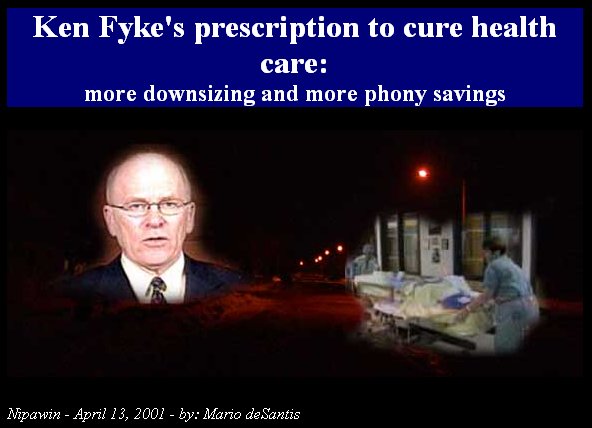Learning Stories
by
Mario deSantis
mariodesantis@hotmail.com
“I am a Canadian, free to speak without fear, free to worship in my own way, free to stand for what I think right, free to oppose what I believe wrong, and free to choose those who shall govern my country.” - -The Rt. Hon. John Diefenbaker, Canadian Bill of Rights, 1960
“The whole judicial system is at issue, it's worth more than one person.”--Serge Kujawa, Saskatchewan Crown Prosecutor, 1991
“The system is not more worth than one person's rights.”--Mario deSantis, 2002
Ensign Stories © Mario deSantis and Ensign
|
|
Globalization has caused a much lower growth rate of our economies in the last 20 years than in the previous 20 years. And specifically, as Canada is concerned, the economic rate of growth has been one of the lowest among the developed countries. Economist Lars Osberg has stated that in the last decade our quality of life could have decreased by some 10%(1). Globalization has also effected a wider economic gap between the poor and the rich. The fact that our economy has downsized and the fact that our quality of life has progressively declined are evidence of the breakdown of our political and business leadership. As a consequence, the current precarious predicament of health care should not be a surprise to anyone; health care has been eroding little by little in the last two decades and demanding a progressively larger share of our public budgets. Ken Fyke has released his prescription(2) to cure health care in Saskatchewan and intelligently enough he has discovered that the cure rests in its downsizing. In a nutshell, he wants to decrease the number of hospitals from 70 to 20, and make up for this downsizing by establishing, for example, better ambulance services, a provincial Quality Council, more research and a 24-hour medical advice phone line. Ken Fyke's prescription has been determined by the realization that health care is mismanaged and that we have a list of many problems, but nowhere in his prescription he has described the causes of our mismanagement and the causes of our problems. We have a prescription to cure our problems to day, but we don't have the understanding on how to find remedies to the causes of our problems. The mentality of our leadership is flat, and this includes our social researchers as well; they are able to find problems and statistical correlation about these problems, but they don't have the intelligence to look into the causes of our problems, today and back in time. Ken Fyke's prescription is phony, especially so when at a time of gross mismanagement he wants health care to focus on quality rather than on quantity. He says that quality can save some 35% of our health care expenditures without realizing that today's quality shouldn't cost a penny. In the meantime, Fyke is telling us that his prescription would cost some $100 million but that there would be savings in the process. Instead to unleash the creativity of our people, our Big Brains continue to downsize our health care, and count the dollar savings of their misdeeds. I have a first prescription for health care, and it doesn't cost a penny: get rid of the authoritarian Carver's model of governance(3), and make every health care agency a learning organization(4). References/endnotes Relevant political and economics articles http://www.ftlcomm.com/ensign 1. Economic Reflections: Cretinism, the Threat of Tobinism and Old Joe Who, by Mario deSantis, February 22, 2001 http://www.ftlcomm.com/ensign/desantisArticles/2001_300/desantis331/economics.html 2. Caring for medicare: sustaining a quality system, Saskatchewan Commission on Medicare, Commissioner Kenneth J. Fyke, April 2001 http://www.medicare-commission.com/ 3. The Essence of Carver's Policy Governance® Model: A Machiavellian plot to reinforce an authoritarian Saskatchewan Healthcare, by Mario deSantis, September 20, 2000 http://www.ftlcomm.com/ensign/desantisArticles/2000_200/desantis230/CarverMach.htm 4. Learning Organizations, http://www-bus.colorado.edu/faculty/larsen/learnorg.html |
